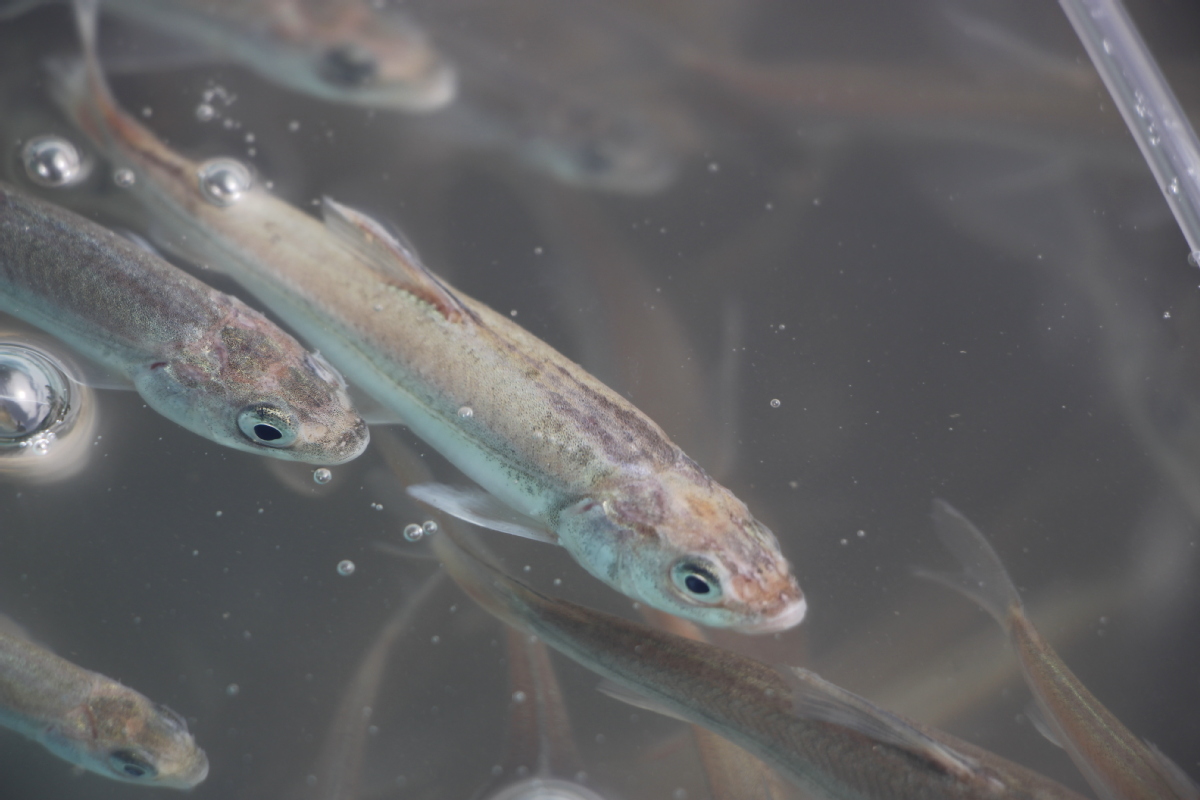Breeding of rare carp aided by innovation


CHONGQING-At an altitude of 3,300 meters, the headwater region of the Yangtze River shelters numerous endangered species of wildlife.
And in the northwestern province of Qinghai, new artificial intelligence technology is being used to escort rare carp to freshwater breeding sanctuaries. Qinghai Lake, the country's largest inland saltwater lake, covers around 4,400 square kilometers and is home to the naked carp, a species native to the plateau.
Between May and August every year, the naked carp travel hundreds of kilometers upstream to spawn in fresh waters surrounding the lake. The rare carp feed on algae in Qinghai Lake and can help purify the water. In turn, they become easy prey for waterfowl and help sustain the lake's ecological balance.
To stabilize the carp population, the local government has renovated dams into terraced conduits so the migratory carp can reach their breeding grounds.
However, the 300-km-long conduits are difficult to monitor and illegal fishing is hard to trace, said Wang Luhai, a senior engineer with the China Institute of Water Resources and Hydropower Research. It is also a challenge to conduct scientific research on the species, Wang added.
CloudWalk Technology, a technology solution provider in Chongqing, has come up with a creative solution to help safeguard the migratory carp. Above the shimmering waters, they have installed cameras to capture real-time images of the waterways and identify biological attributes of different species via video-streaming data analysis.
Zhang Yuqi, senior algorithm engineer of the Cloudwalk Research Institute, said the agile processing speed of their AI technology performs the seemingly impossible task of tracking the wild carp in a complex and changing underwater environment.
"AI technologies can help accurately detect the carps' breeding quantity and ecological distribution in Qinghai Lake, which provides further scientific data support for preserving the species," Wang said.
In 2002, only 2,592 metric tons of naked carp populated Qinghai Lake. In 2003, Qinghai province launched a fishing and sales ban on the species.
Last year, 100,400 tons of naked carp were reported in the lake, marking an enormous stride in restoring the species' population.
China has also announced another 10-year ban on the fishing of naked carp in Qinghai Lake and rivers upstream from this year to Dec 31, 2030, to boost the rare carp stocks and improve the local ecosystems.
Zhang said: "In the future, we want to increase fusing the AI technologies with research, preservation and monitoring of endangered animals based on this intelligent wildlife protection paradigm to better safeguard the plateau."
Xinhua



































